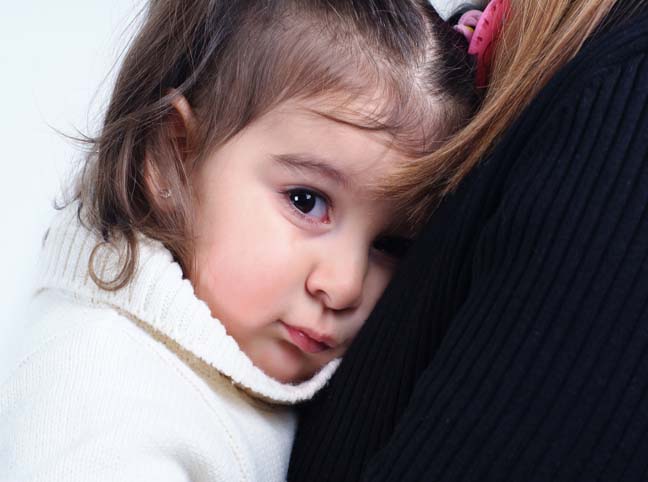The Honeymoon Principle
Children naturally save up their most intense emotions and are most comfortable expressing them around those they have an intimate relationship with. When a child enters a new daycare situation, they naturally tend to put their best food forward. This is because they don’t yet have the security that they have with mom and dad and other trusted adults. They aren’t sure if they’ll be rejected if they misbehave and don’t quite know what will happen if they have a tantrum or otherwise act out. As time goes on, trust builds and the child/caregiver relationship strengthens. When this happens, the caregiver is let into the child’s inner circle where she is comfortable being who she is and with expressing her most intense emotions.
Signs the Honeymoon is Over
Usually four to six months after your child has begun daycare, you’ll notice that her behavior towards daycare changes. She may have tantrums when it comes time to head out the door or she may flat out tell you she doesn’t want to go. You may also begin to get reports from her provider that your child’s behavior has changed. You may hear that she’s beginning to demonstrate aggression towards other children or that she has had her first major meltdown. These are often signs that your child has become comfortable with her environment, her provider and with the other children in her daycare. Since she now feels safe and secure, she’s beginning to test the waters by pushing the boundaries.
What to Do When It Happens to You
Children thrive off of consistency, structure and routine. If you’re getting signs that your child’s daycare honeymoon is over, the best thing you can do is be clear about your expectations and boundaries. Work with your child’s daycare provider to consistently communicate and enforce behavioral standards and have set consequences for breaking the rules. Be sure to have a solid morning routine that you follow and praise your child when you get good reports from her provider. If you believe your child is in a safe, loving and nurturing daycare arrangement, display confidence in your choice.
When Something More May be Going On
Whenever a child communicates something about her daycare provider or situation, it’s important to listen carefully. While it is completely normal for children to experience behavioral regression once they’re comfortable in their daycare situation, you want to be sure that’s what is really going on. When trying to gather additional information about something your child has said, it’s best to ask open ended questions. Questions like “What was your favorite/least favorite thing at daycare today” will give you insight into the situation at hand. Making unexpected visits to the daycare can also help you to gather information and gauge how your child is being cared for.
Just like with marriage, once people get to really know each other, more and more about their personality, behavioral patterns and temperament are revealed. As your child gains trust in her caregiver and they develop their own relationship, she’ll become more comfortable and confident in her care.








